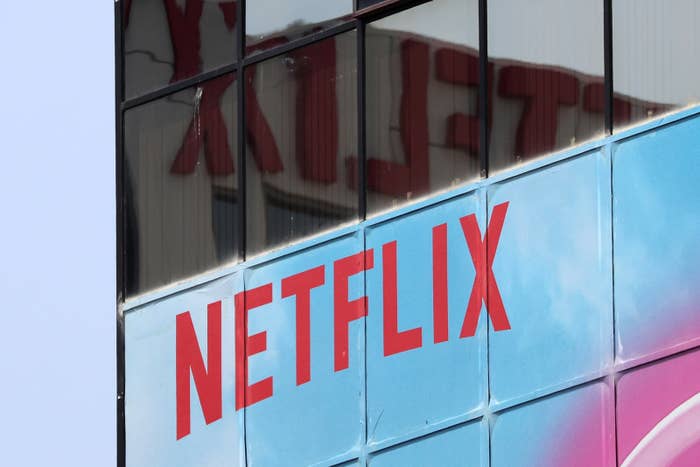
Netflix and eight other video streaming platforms on Thursday promised to regulate contentious content in India, a rapidly growing video streaming market. The nine companies, which also include Hotstar, Zee5, Jio Cinema, Viacom18, ALTBalaji, Eros Now, SonyLIV, and Arre, voluntarily signed a “Code of Best Practices” that the Internet and Mobile Association of India, a key telecom industry lobby of which they’re all members, created over the last year.
The code, a copy of which BuzzFeed News reviewed, says that Netflix and the other streaming platforms would regulate themselves, voluntarily banning content that “deliberately and maliciously disrespects the national emblem or national flag,” outrages “religious sentiments of any class, section, or community,” “promotes or encourages terrorism and other forms of violence against the State (of India) or its institutions,” as well as content that Indian courts have prohibited, including anything that depicts children engaging in sexual acts.
The code also mandates that all signatories appoint a dedicated person or a team to address complaints about content on their platforms that violate these rules, and explicitly states that India’s IT and broadcasting ministries, as well as the country’s government, could forward any complaints Indian citizens make about content on these platforms. The IAMAI has sought “endorsement” for the code from India’s Ministry of Information and Broadcasting, which regulates television content, and the country’s Ministry of Electronics and Information Technology.
Sources at Netflix who wished to remain anonymous told BuzzFeed News that the company agreed to self-regulate in an attempt to avoid official government censorship. As US-based video streaming services like Netflix and Amazon Prime Video have expanded in India, they’ve struggled over whether to stream controversial content in the country. Some Indians have slammed Netflix for showing nudity. Amazon, meanwhile, has chosen to actively censor nudity and references to beef (cows are considered holy by India’s majority Hindu community) in the shows and movies it streams in India. India’s cable TV companies — which are legally required to abide by the Indian broadcasting ministry’s censorship and obscenity laws — have also called out streaming companies for their content, which is not legally regulated in the same way theirs is.
A Netflix spokesperson issued the following statement to BuzzFeed News: “The self regulation code is a set of guiding principles for participating companies like us. It ensures an environment that protects the artistic vision of content producers so that their work can be seen by their fans. The code also empowers consumers to make viewing choices that are right for them and their families.”
None of the other companies responded to BuzzFeed News’ requests for comment.
Critics say that the code amounts to “pre-censorship” and sets a bad precedent in India’s nascent video streaming market. On Thursday, the Internet Freedom Foundation, a New Delhi–based nonprofit advocacy organization that works on issues of online censorship and privacy, wrote a letter to the IAMAI, urging it to rethink the code, and saying that the platforms wanted to put the code in place to manage any potential liability through self-censorship. “This is a tremendous setback to the freedom of speech and expression of users, and will also impact production houses and independent artists who create online content that is outside the mainstream of social choices but enjoys an online audience,” the nonprofit wrote in the letter.
“Ultimately, this is bad for Indian users of these platforms,” Apar Gupta, executive director of the Internet Freedom Foundation, told BuzzFeed News. “There is no legislative framework in India right now for censoring online content, which includes video streaming services, and also, there are no proposals in the Indian government to censor online content — so why have they signed this?”
Gupta also said that current Indian laws covering obscenity, among other things, already govern what you can show online, so having an additional code wasn’t necessary. That’s the same reason why Amazon Prime Video, Netflix’s largest video streaming rival, hasn’t signed the agreement.
“We provide customers with compelling content they love and creators a forum to create unique and passionate stories. While we are assessing the situation, we believe that the current laws are adequate to fulfill this mission,” an Amazon spokesperson told BuzzFeed News.
Gupta said that seeking government endorsement of the code is “dangerous.” If the government empowers the ministries, “you risk the ministries not just stopping [at the code],” he said.
Earlier this month, Netflix pulled an episode of its show Patriot Act With Hasan Minhaj in Saudi Arabia after the country’s government complained that it violated the country cybercrime laws. In the episode, Minhaj mocked the Saudi crown prince over the murder of journalist Jamal Khashoggi.
“I am amazed,” said Gupta. "They haven’t learned any lessons from that controversy.”
